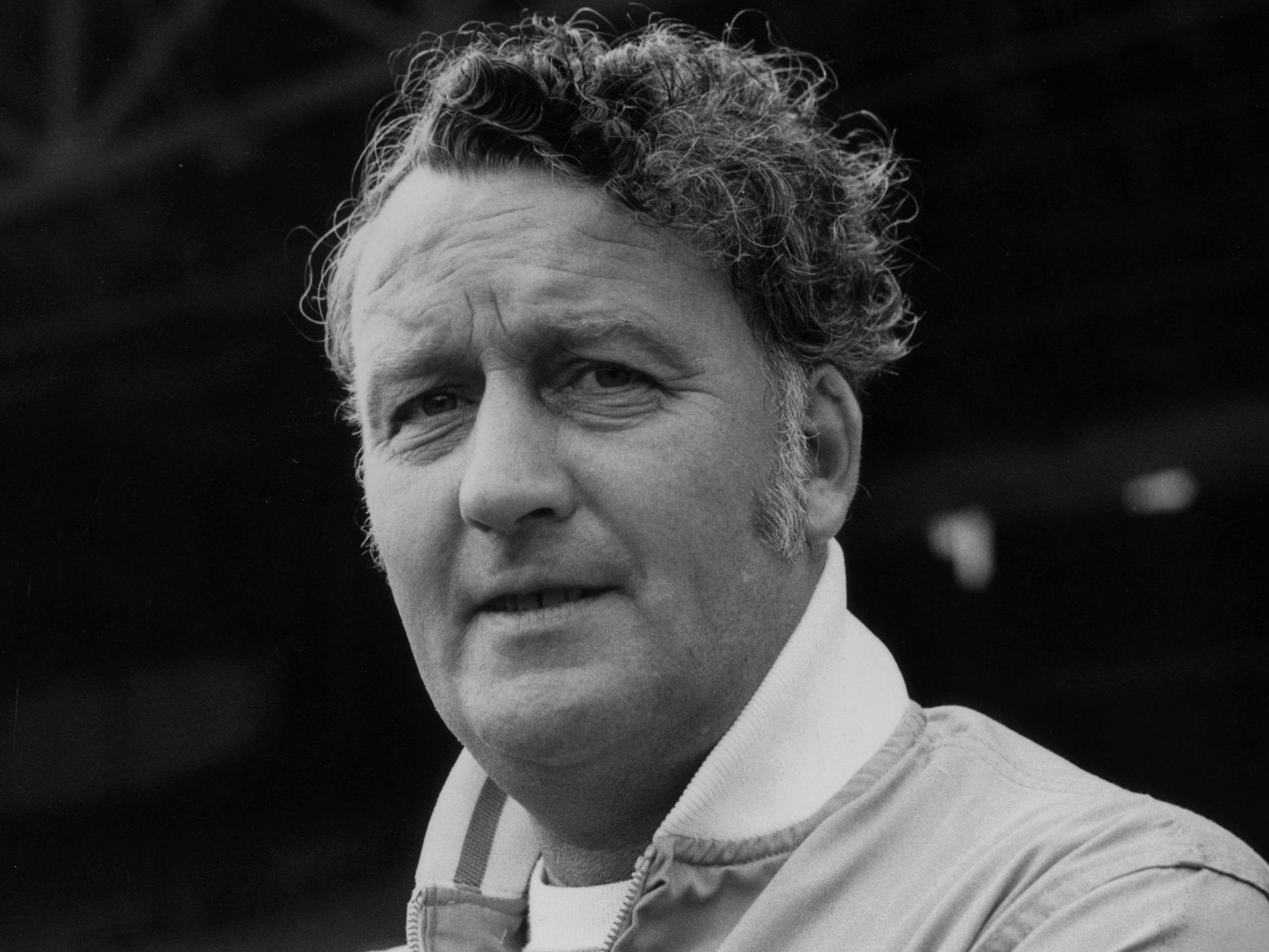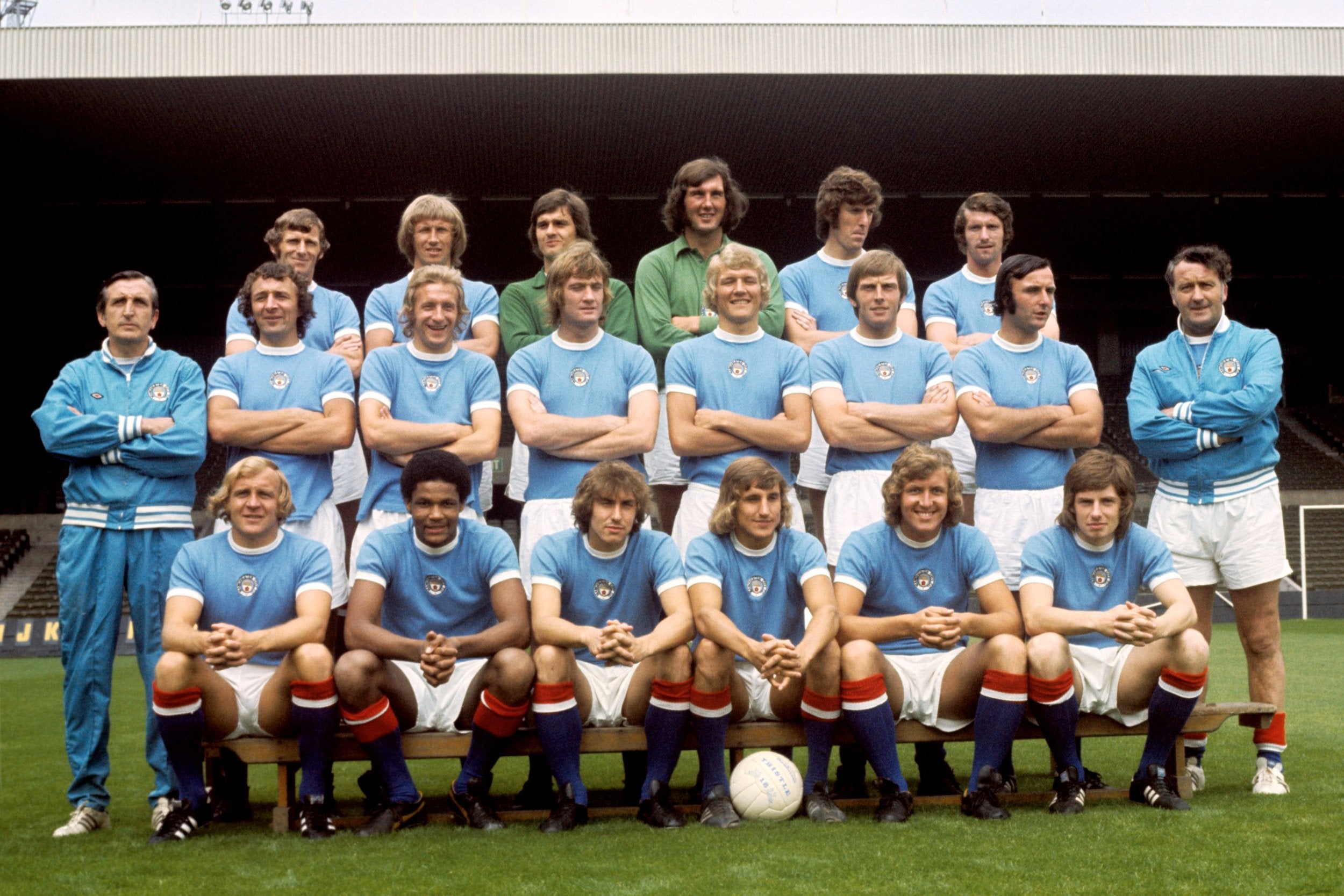Johnny Hart: Manchester City stalwart who became a reluctant manager of the club
‘I liked being second in command,’ Hart reflected. ‘Management was different. I didn’t really want the job but if I’d turned it down I’d probably have been moved on’

Johnny Hart arrived at Manchester City as an office boy in 1944 and departed nearly 30 years later after a spell as manager which lasted six months. In between came a playing career initially characterised by a flair for goals but ultimately defined by a forlorn fight against injury.
Hart, who has died aged 90 after a long struggle with dementia, scored 73 times in 178 First Division and FA Cup games for City and was on the playing staff at Maine Road from 1945 to 1963. Only 11 of those appearances came after he suffered a broken leg at Huddersfield in 1955, although he soldiered on making sporadic comebacks and hoping for a miracle until 1963.
Despite missing the end of that fateful 1954-55 season, which culminated in City losing to Newcastle in the FA Cup final at Wembley, Hart finished joint leading scorer as he also did in 1951-52. A year later, after the team again reached the final and this time beat Birmingham, pictures of the celebrations at Manchester Town Hall show him being propped up by two colleagues.

Today the Lancastrian would be termed a midfielder, not of the schemer or a bull-at-the-gate variety. In the post-war era he was classified as an inside-forward and spent little time in his own half. Standing 5ft 9in, Hart made his first-team bow for City in wartime football, then scored on his official debut in an FA Cup tie at Barrow at the age of 17.
After his introduction to the First Division side in 1948 he became a fixture in City’s attack. However, he was often too brave for his own good. Apart from having his leg shattered a month before the 1955 final, he once suffered broken ribs and a punctured lung in a collision with Tottenham goalkeeper Ted Ditchburn.
His senior swansong came at Preston in 1961, whereupon he was appointed youth coach and made occasional appearances at wing-half in City’s ‘A’ team alongside players 20 years his junior.
Hart remained on the backroom staff throughout City’s great years under Joe Mercer and Malcolm Allison. When the latter left towards the end of the 1972-73 campaign he was surprisingly promoted to the position of manager.
During the summer he re-signed Denis Law from Manchester United, but in October, when City sat 13th in the top flight, he was suddenly hospitalised with severe stress disorder. He relinquished the hot seat, Ron Saunders taking over, but later worked in City’s promotions department and was granted a testimonial match the following season.
“I liked being second in command,” Hart later reflected. “Management was different. I didn’t really want the job but if I’d turned it down I’d probably have been moved on. The players were terrific and all wanted to play for me. But I’m quite a shy person, and I guess management just wasn’t for me. It all got to me and I became quite ill.”
City inducted Hart into their Hall of Fame in 2006.
His wife Connie predeceased him but he is survived by two footballing sons, central defenders Paul and Nigel, who played nearly 1,000 senior matches between them.
John Paul Hart, footballer, coach and manager, born 8 June 1928, died 26 November 2018
Join our commenting forum
Join thought-provoking conversations, follow other Independent readers and see their replies
Comments